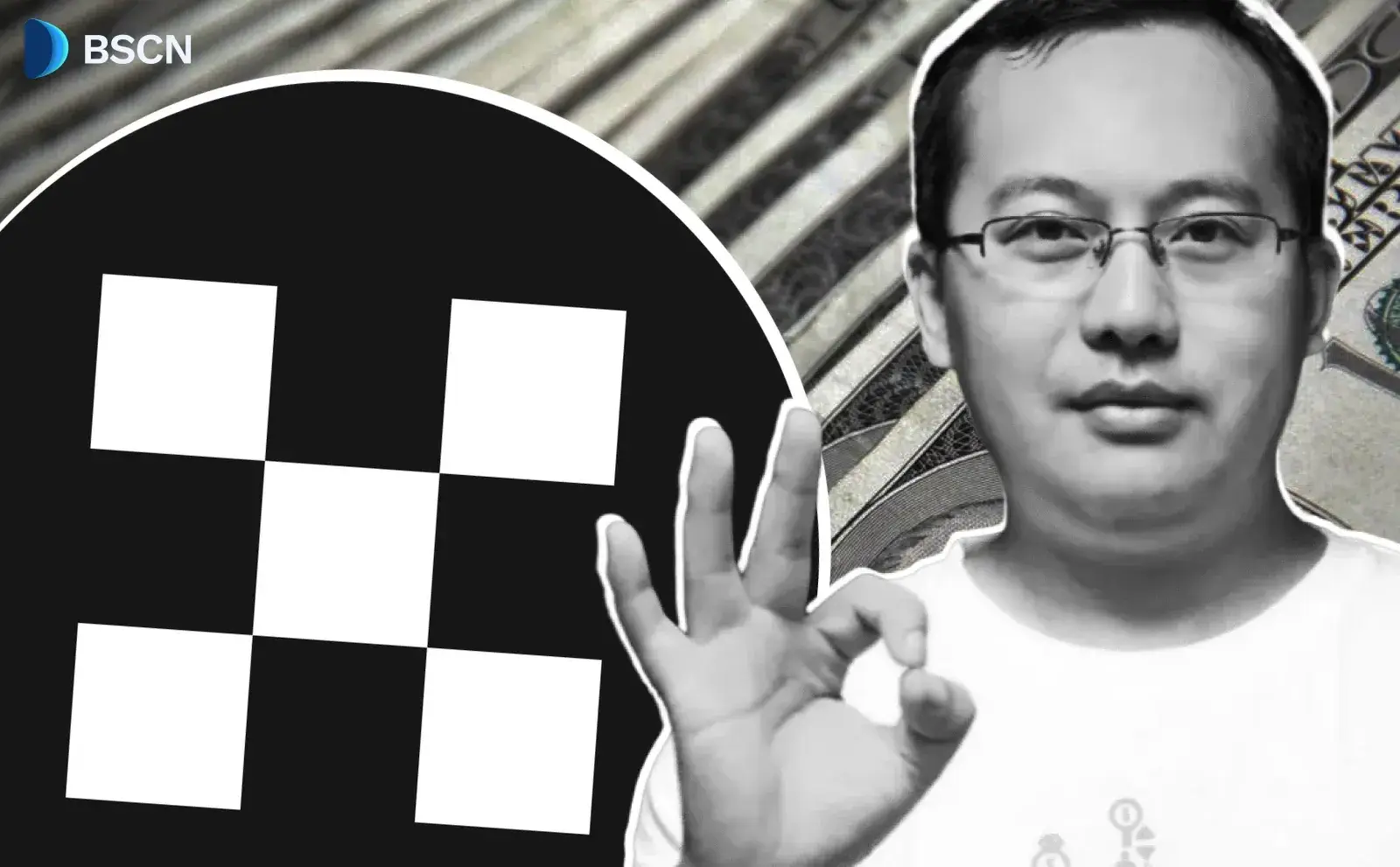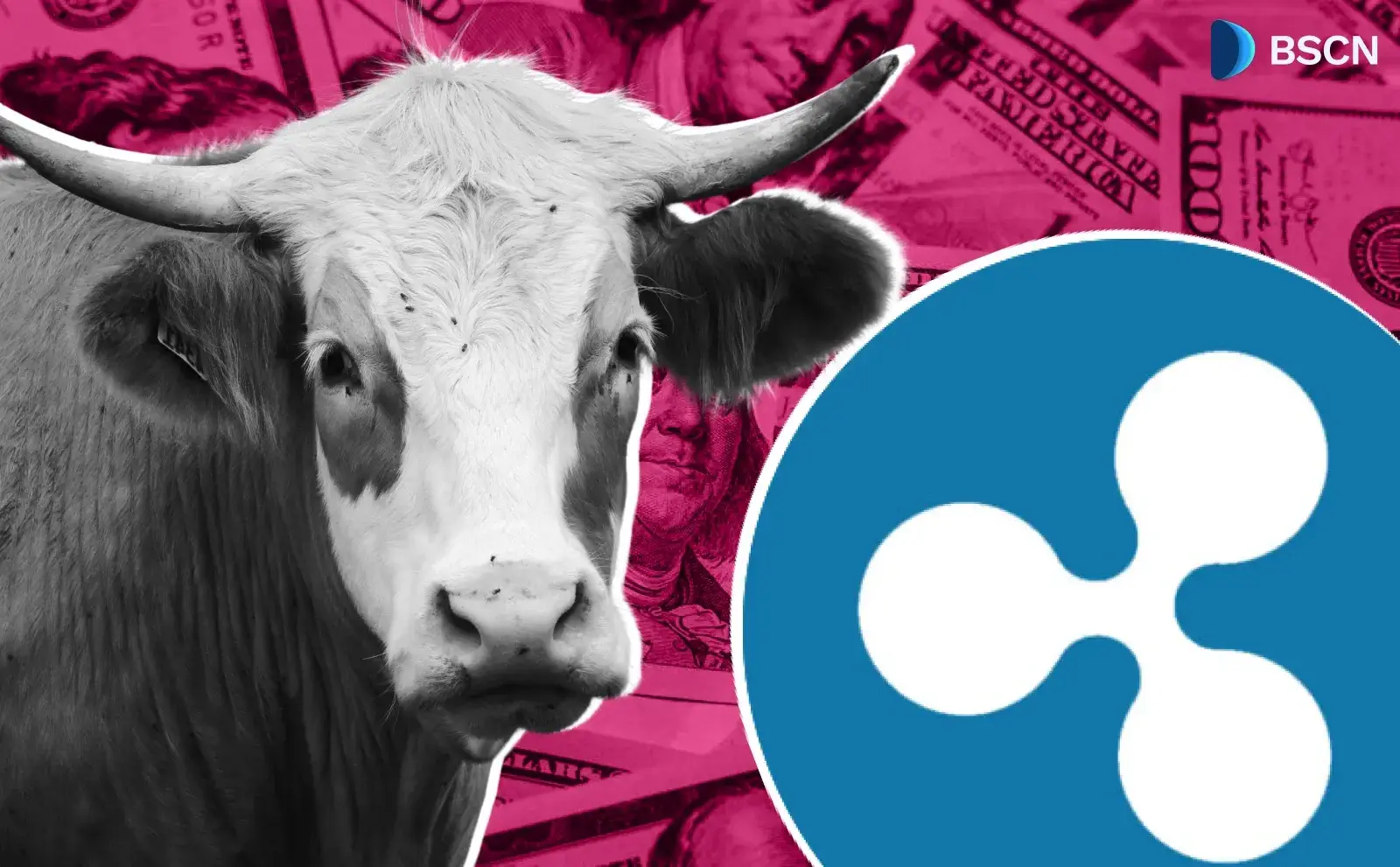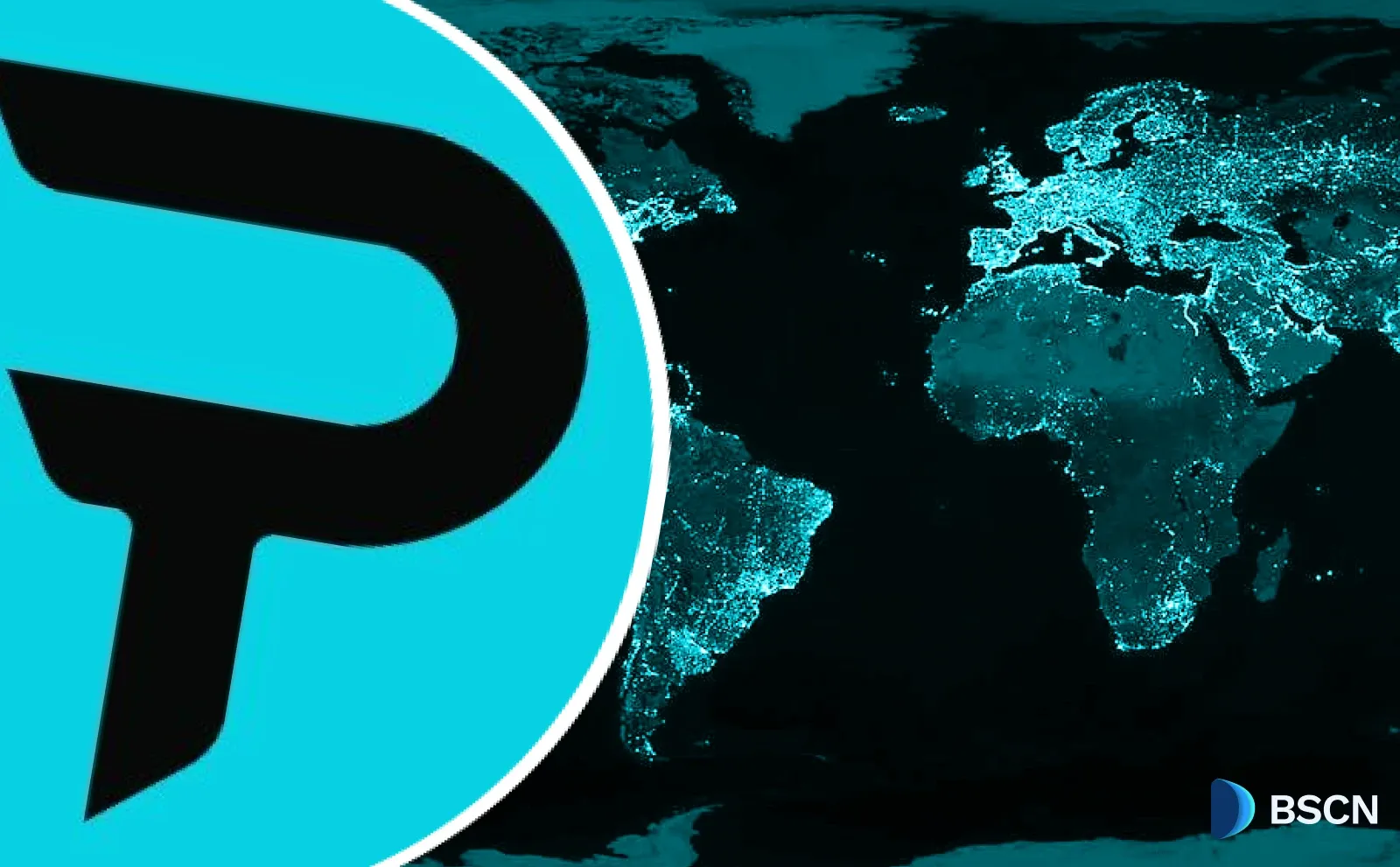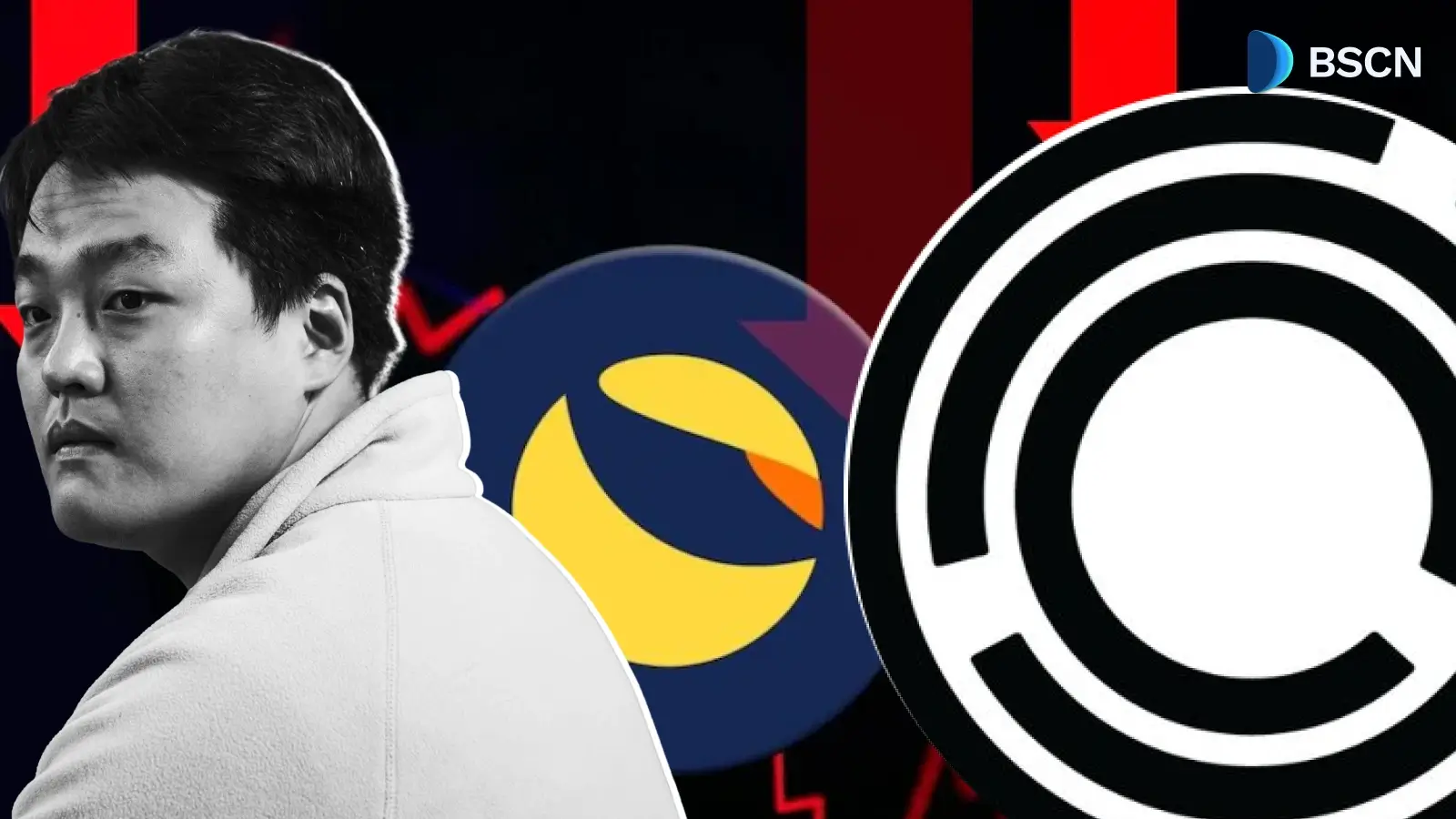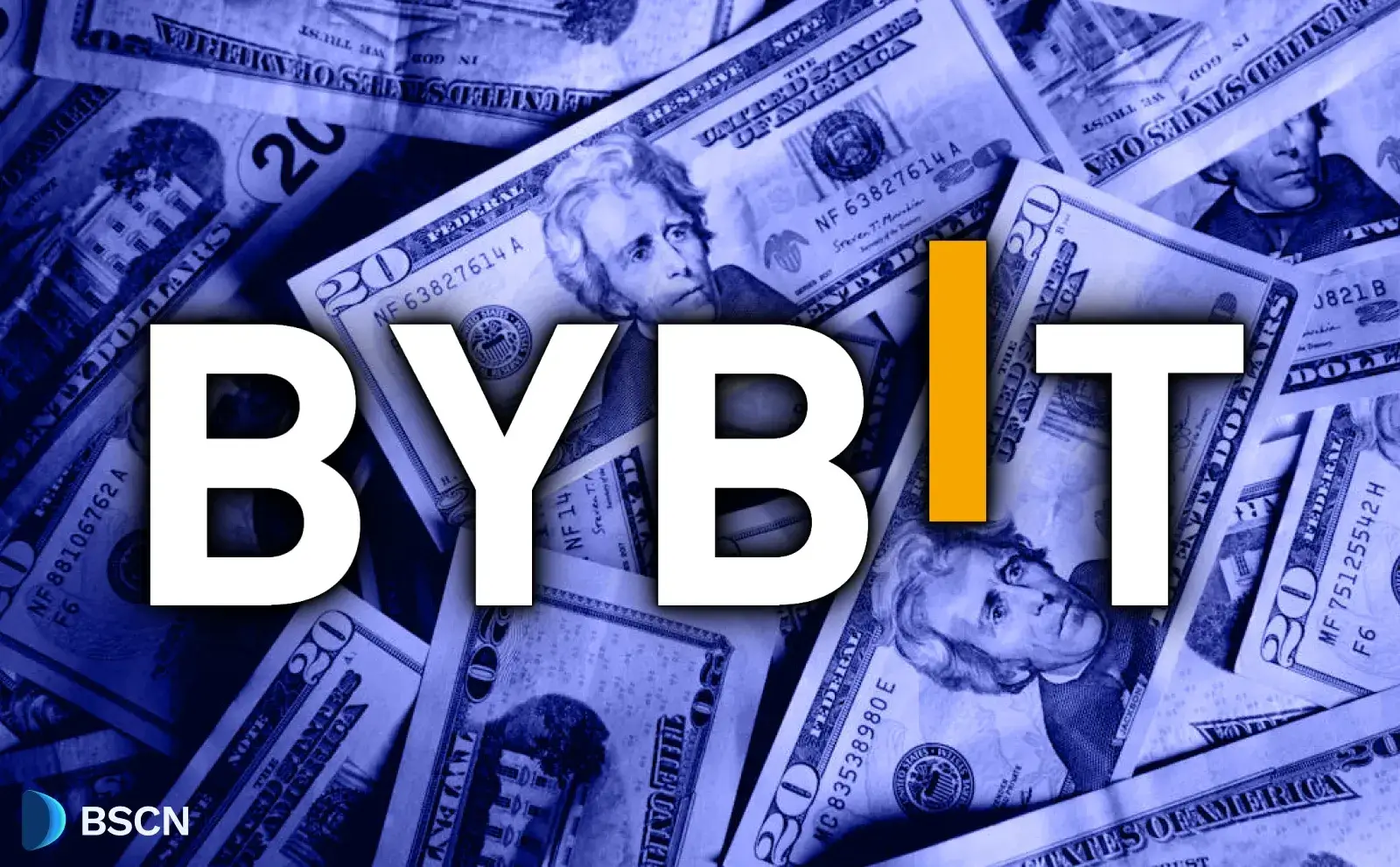What is Shardeum and its SHM Token?

Shardeum is an EVM-based Layer 1 blockchain designed to solve the scalability, security, and decentralization trilemma.
Soumen Datta
April 16, 2025
Table of Contents
Shardeum is a Layer 1 Ethereum Virtual Machine (EVM)-based blockchain that promises to solve the blockchain trilemma of scalability, decentralization, and security.
Founded by Nischal Shetty, the creator of WazirX (India’s largest crypto exchange), Shardeum has been in the works since 2017. After raising $18.2 million in 2022 and garnering over a million testnet contributors, the project is now approaching its mainnet launch. At its core lies SHM, the native utility token that powers the Shardeum network.

In this article, we explore Shardeum's core features and its native SHM token, shedding light on how it could impact the future of blockchain technology.
Shardeum: A New Era in Blockchain Technology
Shardeum is a Layer 1 blockchain built to offer linear scalability, low gas fees, and unparalleled security. It’s designed to address the limitations of current blockchain systems that struggle to scale effectively. The project aims to bring blockchain technology to the masses by onboarding billions of users, focusing on a wide range of use cases from decentralized finance (DeFi) and open-source AI to gaming.
At the heart of Shardeum’s architecture is its unique sharding technology. Sharding is a method of splitting a blockchain into smaller, more manageable pieces, or "shards," each of which processes transactions in parallel. This drastically improves the network’s transaction throughput and scalability. Shardeum employs dynamic state sharding, a solution that adapts to the needs of the ecosystem in real-time.
Shardeum’s Core Features
Shardeum stands out from other blockchain networks thanks to its features. Let’s dive deeper into each of these elements.
Dynamic State Sharding
Shardeum utilizes dynamic state sharding to achieve scalability. In traditional sharding, each shard operates independently, often causing inefficiencies when processing transactions across multiple shards.
Shardeum’s approach allows nodes in different shards to handle overlapping address ranges, enabling simultaneous processing of transactions that affect multiple shards. This reduces delays and increases throughput, even when network demand fluctuates.
Furthermore, this flexibility allows Shardeum to scale up or down dynamically without disrupting the network’s operations.
Atomic Processing and Cross-Shard Composability
Shardeum also integrates atomic processing, ensuring that all parts of a transaction are either executed successfully or not at all. This prevents partial transactions and ensures data integrity.
Additionally, Shardeum enables cross-shard composability, which means that transactions can interact with multiple shards seamlessly. This capability is vital for smart contract developers who want to build complex applications that rely on data spread across the blockchain.
Autoscaling
Another feature is its autoscaling capability. The network can automatically adjust its validator pool based on real-time demand. When a decentralized application (dApp) experiences high traffic, Shardeum increases the number of validators to maintain performance.
Once traffic drops, the network reduces the validator count. This ensures efficient resource utilization and consistent performance, regardless of network load.
Linear Scaling
Shardeum is designed to scale linearly, meaning that as more validator nodes are added to the network, the transaction throughput (transactions per second or TPS) increases proportionally.
This stands in stark contrast to many blockchain networks that face diminishing returns when scaling. Shardeum's ability to instantly boost TPS by adding nodes in a “standby” mode makes it a good option for applications that require high throughput.
The SHM Token
The SHM token is Shardeum's native cryptocurrency, playing a central role in the network’s functionality:
Staking and Rewards
Network participants can stake SHM to help secure the network and validate transactions. In return for their participation, stakers earn rewards, which are distributed proportionally based on the amount of SHM they stake.
Gas Fees and Network Utility
SHM also serves as the gas token for Shardeum, similar to how ETH functions on the Ethereum network. Users need SHM to pay transaction fees and execute smart contracts. The gas fees on Shardeum are expected to remain low indefinitely, thanks to the network’s unique sharding and scaling solutions.
SHM Tokenomics
Shardeum has a total supply of 508 million SHM tokens, with an initial allocation of 249 million tokens. The distribution is as follows:
- Sale: 91.44 million SHM (36.72%) – These tokens will be released gradually, with a three-month cliff followed by a two-year daily linear vesting period.
- Team: 76.2 million SHM (30.6%) – These tokens will also have a three-month cliff, followed by a two-year daily linear vesting.
- Foundation: 55.88 million SHM (22.44%) – These tokens will be unlocked at the Token Generation Event (TGE).
- Ecosystem & Airdrops: 25.48 million SHM (10.23%) – These tokens will be unlocked at the TGE.
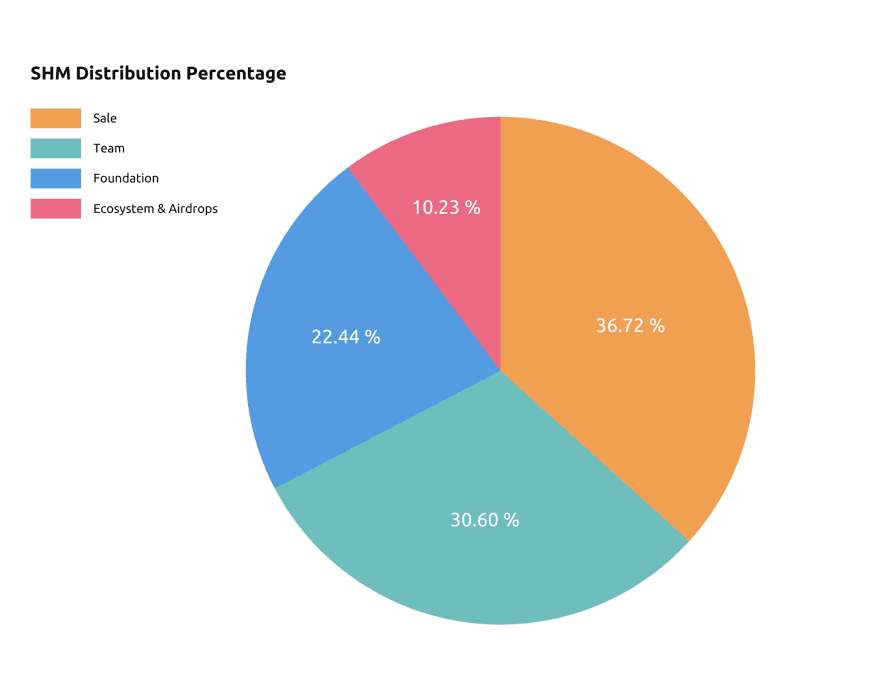
SHM Token distribution
Shardeum’s Ecosystem and Adoption
The Shardeum ecosystem is already growing, with numerous projects being built on the network, from decentralized exchanges (DEXs) to NFT marketplaces and more. As of now, Shardeum had several testnets: Liberty 1.X, Liberty 2.X, and Sphinx 1.X. These testnets have been crucial in attracting developers and testing the network’s features.
A key component of any blockchain ecosystem is its DEX. Shardeum currently has Swapped Finance, a DEX similar to Uniswap v2, operating on its testnet. This DEX allows users to swap tokens with low fees and participate in liquidity provision. Other notable applications include Dotshm.me, a Web3 domain name service similar to Ethereum’s ENS, and Spriyo.xyz, an NFT marketplace with thousands of collections.
The Future of Shardeum and SHM
With a focus on scalability, low fees, and robust security, Shardeum positions itself as a major player in the Layer 1 blockchain space.
For investors and token holders, SHM represents a promising opportunity. The tokenomics, with a fixed supply and sustainable emission model, could help ensure that SHM appreciates in value over time. Moreover, the planned airdrops and ecosystem rewards further incentivize early adoption and participation in the network.
Read Next...
Disclaimer
Disclaimer: The views expressed in this article do not necessarily represent the views of BSCN. The information provided in this article is for educational and entertainment purposes only and should not be construed as investment advice, or advice of any kind. BSCN assumes no responsibility for any investment decisions made based on the information provided in this article. If you believe that the article should be amended, please reach out to the BSCN team by emailing [email protected].
Author
 Soumen Datta
Soumen DattaSoumen has been a crypto researcher since 2020 and holds a master’s in Physics. His writing and research has been published by publications such as CryptoSlate and DailyCoin, as well as BSCN. His areas of focus include Bitcoin, DeFi, and high-potential altcoins like Ethereum, Solana, XRP, and Chainlink. He combines analytical depth with journalistic clarity to deliver insights for both newcomers and seasoned crypto readers.
Crypto Project & Token Reviews
Project & Token Reviews
Comprehensive reviews of crypto's most interesting projects and assets
Learn about the hottest projects & tokens



